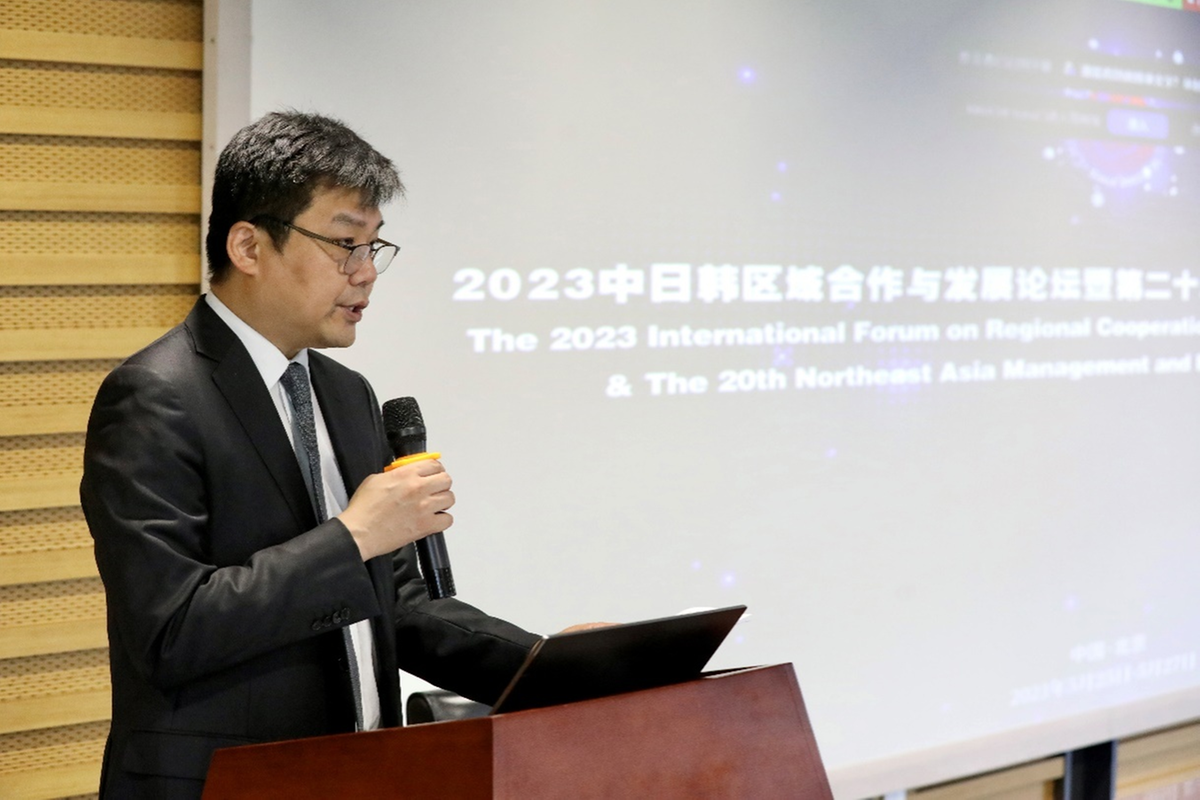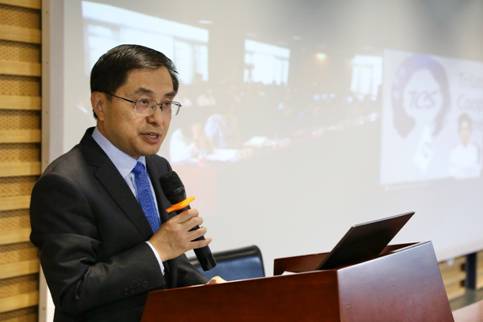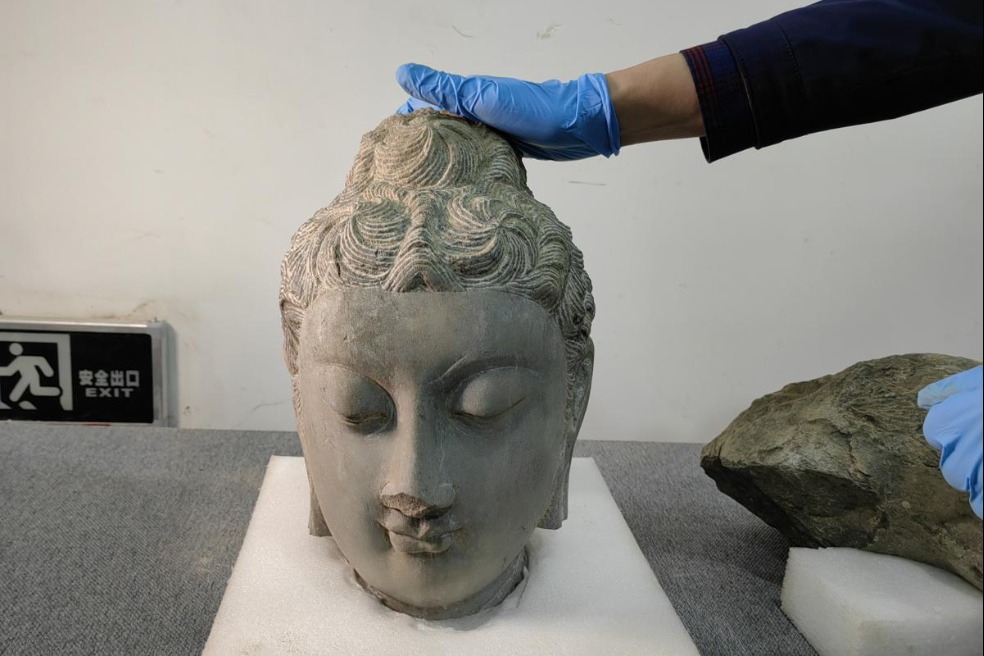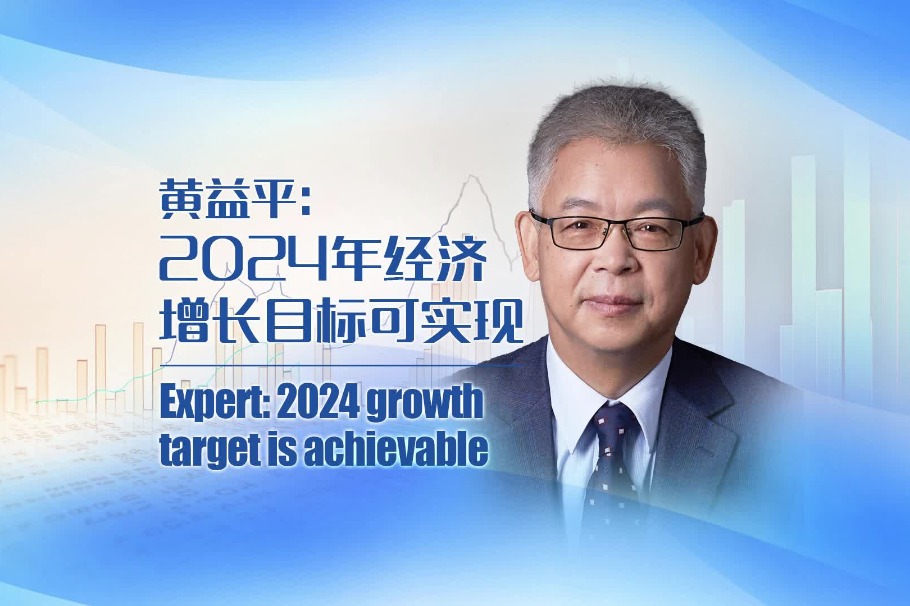Forum promoting China-Japan-ROK cooperation
By Liu Jianna | chinadaily.com.cn | Updated: 2023-05-26 19:00
China, Japan and the Republic of Korea should manage their differences and increase cooperation to drive global growth, experts said at the 2023 China-Japan-ROK Regional Cooperation and Development Forum held at the Beijing Foreign Studies University on Friday.
The theme of the forum was China's path to modernization, economic recovery, and comprehensive cooperation among China, Japan and the ROK in the Asia-Pacific region.

Zhao Gang, vice-president of the Beijing Foreign Studies University, Ou Boqian, secretary-general of the Trilateral Cooperation Secretariat, and Wang Hao, deputy editor-in-chief of China Daily, attended the opening ceremony. Eight experts from China and abroad delivered keynote speeches.
At the opening ceremony of the forum, Zhao Gang said that the combined population of China, Japan and the ROK accounts for about 20 percent of the world's total; their total economic volume accounts for 70 percent of Asia and 20 percent of the world, and it is the most dynamic growth belt of the global economy. Given the current unstable world situation, there is a need to address common goals such as how China, Japan, the ROK and the Asia-Pacific community can strengthen exchanges, focus on cooperation, maintain regional security and promote economic recovery and growth.

Ou Boqian said that in the face of global economic uncertainty, East Asia has made notable progress in regional economic cooperation and integration. The Regional Comprehensive Economic Partnership, which came into force on Jan 1, 2022, is the first trade agreement that unites the three major Northeast Asian economies. After more than a year of its implementation, the RCEP has yielded substantial benefits and dividends for trilateral cooperation. Within the RCEP framework, despite challenging domestic and international economic conditions, the three countries have fostered cooperation in sectors such as machinery, automobile, and optoelectronic equipment manufacturing. These efforts have laid a solid foundation for regional value chain cooperation in high-end manufacturing industries.

Wang Hao noted that while it is true that China-Japan-ROK relations face new challenges, and historical issues add to the complexity, given their interdependence they should not let forces from outside of the region manipulate their ties.
In this regard, media outlets in China, Japan, and the ROK should fulfill their social responsibility by helping the three sides manage their differences, promote bilateral and trilateral exchanges, and enhance mutual trust.
Ni Yueju, a researcher at the Institute of World Economics and Politics, Chinese Academy of Social Sciences, said China, Japan and the ROK are highly complementary in the field of digital trade and hold huge cooperation potential. Especially the e-commerce section of the RCEP agreement is the first comprehensive and high-level e-commerce rule reached in the Asia-Pacific. Under the framework of the RCEP, China, Japan and the ROK should continuously improve digital trade rules, abandon geopolitical factors, strengthen cooperation in global governance and jointly promote the development of global digital trade.
Ding Ke, a senior researcher at the Japan External Trade Organization, said that against the backdrop of China-US rivalry, some cutting-edge technology sectors such as semiconductors, artificial intelligence and quantum computing in China and Japan may decouple, but multinational companies are unlikely to take sides, given China's advantages in intermediate products manufacturing. Further, high-level trade agreements including the Comprehensive and Progressive Agreement for Trans-Pacific Partnership is expected to remove many trade barriers, optimize the institutional environment, lessen geopolitical risks and boost China-Japan cooperation.
Jin Xu, a professor at Konkuk University in Seoul, said China and the ROK can continue to work together in many fields, since the present ROK government is basically continuing with its new-energy policy, except for a change in its nuclear power policy.
Altogether 27 scholars participated in Friday's forum. The event was organized by the International Business School of Beijing under the Beijing Foreign Studies University, and supported by the Trilateral Cooperation Secretariat and China Daily.
























